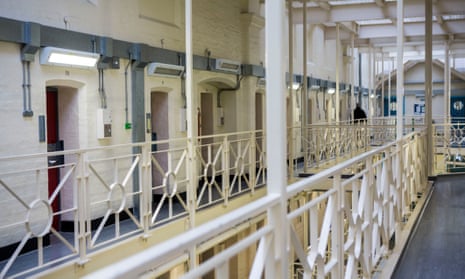When politicians make summer law and order announcements involving big round numbers, it is time to count your spoons and prepare for an autumn election. Boris Johnson is a serial offender. In July he announced 20,000 more police. Now he says he will provide 10,000 more prison places. These are bogus figures in every way. The fact that they are easily remembered numbers should have the public on their guard, especially in the light of Mr Johnson’s shameless false claims about NHS spending during the EU referendum campaign.
The 10,000 prison places are a particularly fraudulent announcement. On Sunday, Mr Johnson framed this figure as “part of a wider crackdown on crime” that aims “to keep the public safe”. The message is that his is a get-tough, crack-down, bang-’em-up government. Those extra police will be helping to send extra criminals to jails, which are being expanded to accommodate them.
Except that this is simply not going to happen. Mr Johnson’s announcement is based on the sham claim that the figures are new. But they have been around for years, in a different context. Britain still houses many prisoners in overcrowded and dilapidated buildings. The prison service itself has already said that it would take 9,000 new places simply to eliminate overcrowding. The Prison Reform Trust, a lobbying organisation, says a further 3,000 new spaces are needed to absorb the longer sentences that today’s prisoners are serving. In other words, the new 10,000 is nothing to do with cracking down and everything to do with managing what is already happening.
Expanding prisons is a bankrupt policy of which Labour has often been as guilty as the Conservatives. But it is the Tories who are in power. In 2016, Liz Truss, during her brief stopover as justice secretary, unveiled a white paper which made the same announcement that Mr Johnson made this week. There would be, she said, 10,000 extra places by 2020. Later, this goal was quietly moved back to 2023. The Ministry of Justice now says it is on course to create 3,360 places by that year. So two-thirds of the promise has gone missing. The new figure is allegedly on top of the scaled-back 2023 goal. It cannot be taken seriously as a strategic policy conclusion. It is a fantasy built on an invention.
In any case, prison spending is not just about buildings. It is about training and employing people to work in them. Not long ago, these workers were in post. But in 2012 Chris Grayling began cutting 40% of the workforce. That did not merely slash the numbers, it meant experienced managers – people who knew how prisons work – went, too. They are not easily replaced. Prisons are tough places to work. The attrition rate is high. Wages, however, are low. The Howard League for Penal Reform argues, rightly, that recruitment will get harder, since prisons are competing with police and the Border Force – currently conducting a pre-Brexit recruitment drive – for new staff.
The opportunism of Mr Johnson’s promise is underscored by his simultaneous announcement of a sentencing review. In a logical world, demand for prison resources would be set in the light of sentencing policy. Yet sentencing policy for violent and sexual offenders is now to be the subject of a review, along with a review of the rules governing their early release. This is not the sentencing review the criminal justice system needs. That review would start from a comparative approach. It would look at ways of reducing the prison population and providing alternatives to custody. Long-term spending requirements would then follow. This one starts from the spending and toughens the sentencing to fit.
These announcements are partisan, not policy-driven. They are part of a rupture caused by the hard-Brexit takeover of government. Justice ministers like Michael Gove and David Gauke did useful things on penal policy; their successor Robert Buckland will do his best, too. But penal policy is being made by Brexit fanatics now. The aim is not good penal policy. The aim is policy that fires up the hard-Brexit electorate on which Mr Johnson will concentrate his electoral message. The Conservative party is reverting to its worst traditions. Criminal justice is again the victim.
